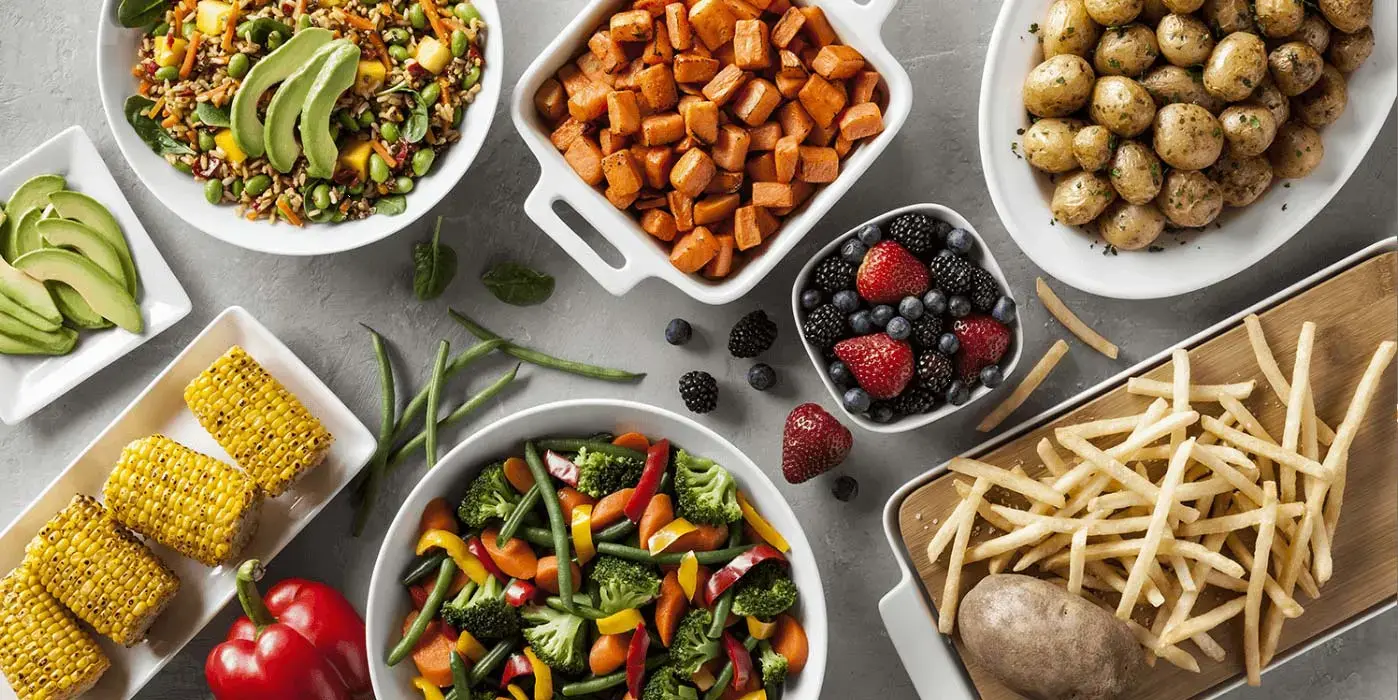Sostenibilidad
El poder de las asociaciones de sostenibilidad en Simplot
10/19/2022

A la gente le encanta la papa en todas las diferentes formas en que se puede preparar este delicioso vegetal. Podemos debatir sobre la delicia de las papas a la francesa crujientes y calientes en comparación con una papa horneada cargada, pero una cosa en la que debemos estar de acuerdo es que esas papas se cultivan de manera sostenible.
En 2009, la empresa Simplot ayudó a fundar una organización con procesadores de papas a la francesa, clientes y cultivadores para ayudar a definir, medir y avanzar en la sostenibilidad de la papa mediante el uso de métricas sólidas que impulsen mejoras en la productividad y rentabilidad.
Hoy en día, esa organización ha crecido hasta convertirse en la Alianza para la Sostenibilidad de las Papas (Potato Sustainability Alliance, PSA), que ahora incluye todo tipo de producción de papas. La PSA cuenta con más de 30 miembros en toda la cadena de suministro, incluidos procesadores, minoristas, compradores, industrias aliadas y organizaciones ambientales no gubernamentales. Cada año, la PSA encuesta a más de 550 productores de papas. La misión de la organización es mejorar los aspectos económicos, ambientales y sociales de la producción de papas en los EE. UU. y Canadá.
“Aunque sabemos que el cultivo de papa ha mejorado con el tiempo, no teníamos los datos para averiguar cuánto hemos progresado o dónde debemos concentrarnos para impulsar resultados más sostenibles”, dice Jolyn Rasmussen, gerente sénior de Desarrollo de Productos Crudos & Sostenibilidad en Simplot. “Para obtener esa información, sabíamos que teníamos que unirnos como industria de una manera no competitiva. Y así surgió la Alianza para la Sostenibilidad de las Papas”.
Estandarizar la recopilación de datos de sostenibilidad y la presentación de informes para toda la cadena de suministro de papas
Los productores de papas tienen opciones sobre qué tipos de papas cultivar y para qué mercados; desde papas doradas y rojas empacadas frescas, hasta papas pequeñas para hornear, y papas russet para papas a la francesa. Algunos productores cultivan diferentes tipos de papas en diferentes campos al mismo tiempo en una operación agrícola, para diferentes clientes.
“Una de nuestras prioridades es estandarizar cómo los productores aportan su información de sostenibilidad de manera creíble”, dice Rasmussen. “Tener una sola encuesta también hace que la vida sea más fácil para los productores que de otro modo tendrían que completar múltiples encuestas de diferentes procesadores y compradores. La PSA alivia esa carga de informes”.
La encuesta anual de sostenibilidad de la PSA a los productores abarca seis métricas principales:
- Eficiencia en el uso de nutrientes
- Eficiencia en el uso de riego
- Emisiones de gases de efecto invernadero
- Riesgo de pesticidas
- Seguridad del trabajador
- Desperdicio y reciclaje
Los resultados se comparten con procesadores y lectores de contenidos para que puedan ver su progreso, comparar su desempeño desde perspectivas regionales y de todo el sistema, y realizar mejoras. Los lectores de contenidos también pueden ver qué mejores prácticas de sostenibilidad están siendo adoptadas por los productores a nivel regional y en toda la industria.
“Colaboramos para definir la sostenibilidad y recopilar los datos para la industria”, dice Rasmussen. “Nuestros miembros no lo utilizan para socavarse entre sí, por lo que realmente no hay riesgo en participar. Se trata de mejorar nuestro desempeño como un todo”.
Adoptar la herramienta Cool Farm para medir mejor las emisiones de gases de efecto invernadero en el cultivo
Para mejorar el cálculo de las emisiones de gases de efecto invernadero, los miembros de la PSA acordaron el verano pasado estandarizar los informes utilizando la herramienta Cool Farm de Cool Farm Alliance (Simplot también es miembro de Cool Farm Alliance).
Originalmente una calculadora de gases de efecto invernadero en la granja, la herramienta Cool Farm en línea proporciona métodos de cuantificación científicamente sólidos que tienen en cuenta las opciones de gestión a escala agrícola y de campo. Los agricultores pueden ingresar a su propia granja y prácticas y obtener comentarios inmediatos sobre el impacto de diferentes opciones de gestión agrícola utilizando escenarios hipotéticos.
“La precisión científica y la credibilidad de nuestros datos son fundamentales para nosotros”, dice Rasmussen. “La herramienta Cool Farm ayudará en este aspecto”.
Preparación de la PSA para apoyar una sostenibilidad aún mayor
Como presidente de la junta directiva de la PSA, Rasmussen está entusiasmado con el futuro de la organización y su potencial para lograr un cambio positivo en toda la industria.
“Nuestra membresía es grande y diversa. Llegar a un acuerdo sobre los estándares de presentación de informes no sucedió de la noche a la mañana”, dice. “Pero estamos cerca de ir más allá de esa fase. Estoy realmente interesado en lo que podemos hacer con la información que estamos recopilando, los cambios que podemos hacer como industria en materia de sostenibilidad”.
“Tendemos a pensar en la sostenibilidad en términos de prácticas como reciclar o reducir los insumos, pero las colaboraciones de la industria son muy importantes. Realmente podemos multiplicar nuestro impacto trabajando juntos”.
- Beneficios de lo congelado
- Colegio y universidad
- Delicatesen
- Desde la cocina de prueba
- Entrega
- Festividades
- Historias de cocina
- K-12
- Mano de obra y personal
- Mercadeo
- Minorista
- Noticias
- Papas a la francesa
- Planificación de menú
- Productos nuevos
- Recursos sobre la Covid-19
- Restaurante de servicio completo
- Restaurante de servicio limitado
- Sostenibilidad
- Tendencias alimentarias
- Trend Feast
- Vegetales
- Healthcare



